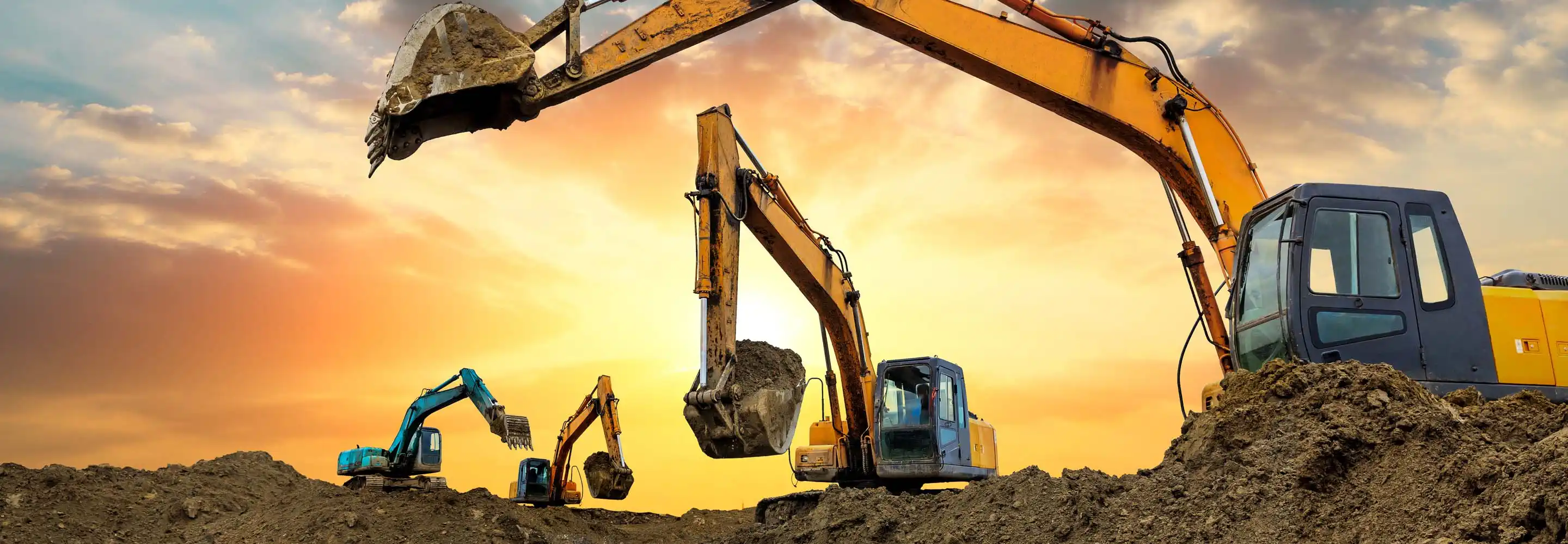Heavy Equipment Rental: High-Quality Equipment for Lease
Wiki Article
Renting Vs. Buying Building And Construction Devices: Making the Right Option for Your Job
When embarking on a building and construction project, one of the essential choices that forecast stakeholders and managers face is whether to rent out or get building equipment. The decision hinges on numerous factors such as cost considerations, task duration, tools maintenance, risk, scalability, and flexibility management.Price Factors To Consider
When assessing the financial element of buying versus renting building equipment, the ahead of time costs and lasting expenditures must be very carefully thought about. Leasing tools frequently requires lower preliminary repayments compared to acquiring, making it an attractive choice for short-term jobs or professionals with budget restraints. Leasing removes the requirement for large funding investments and decreases the financial threat linked with devices possession, such as upkeep and depreciation costs. However, over time, constantly renting tools can collect higher costs than acquiring, especially for extensive tasks.On the other hand, purchasing building tools entails greater ahead of time expenses but can result in lasting savings, especially for lasting projects or constant users. Having tools offers flexibility, convenience, and the possibility for resale value once the job is completed. Furthermore, owning equipment permits personalization and experience with particular equipment, possibly raising effectiveness and productivity on-site. Inevitably, the decision between leasing and purchasing building equipment depends upon the task's duration, frequency of use, budget plan factors to consider, and long-lasting financial goals.
Job Period
:max_bytes(150000):strip_icc()/Balance_Must_Have_Earth_Moving_Construction_Heavy_Equipment_844586-c5b6ac9e5c074c11ad41e9acaea8f099.png)
Alternatively, for long-term projects or recurring construction job, getting equipment could be the much more cost-effective alternative. Getting tools can bring about cost financial savings in the long run, specifically if the tools will be regularly used. Additionally, having devices offers a sense of control over its schedule and permits modification to fit certain project requirements.

Devices Upkeep
Given the vital duty project period plays in determining the most cost-effective method in between buying and renting construction tools, the focus currently shifts towards taking a look at the necessary aspect of devices maintenance. Proper upkeep is vital for ensuring the optimum efficiency and longevity of construction tools. Leasing equipment frequently includes the benefit of having actually properly maintained machinery offered by the rental firm. This can alleviate the burden of maintenance jobs from the task proprietor or professional, conserving time and initiative. On the various other hand, owning tools calls for a proactive strategy to upkeep to avoid breakdowns, ensure security, and extend the devices's life expectancy. Normal evaluations, servicing, and timely repairs are needed to maintain owned and operated tools in leading working problem. Factor in upkeep expenses when choosing in between renting out and acquiring, as disregarding upkeep can lead to expensive repairs, downtime, and project hold-ups. Eventually, a well-maintained building devices fleet, whether leased or possessed, is vital for the effective and efficient completion of construction jobs.Versatility and Scalability
In the world of building and construction devices monitoring, the facet of flexibility and scalability holds significant relevance for job performance and resource usage. Deciding to rent building tools gives a high degree of adaptability as it allows for scaffolding equipment for sale the quick modification of tools kinds and quantities based on the advancing requirements of a task.Furthermore, scalability, another important element, is inherently linked to adaptability. Renting building tools supplies the benefit of easily scaling procedures up or down as project demands change. Professionals can quickly add or exchange devices to match the job's changing requirements without the restrictions of possessing properties that may become underutilized or outdated. This capability to range resources effectively can cause expense savings and improved job timelines, making leasing a desirable choice for projects calling for versatility and receptive resource allotment.
Risk Management
Efficient threat administration in building and construction tools operations is paramount to making sure project success and mitigating prospective financial losses. Building and construction tasks inherently entail various dangers, such as tools breakdowns, mishaps, and job hold-ups, which can significantly affect the project timeline and budget plan. By carefully considering the threats connected with owning or renting building and construction equipment, job managers can make informed choices to minimize these prospective threats.Renting out construction tools can provide a degree of danger reduction by moving the responsibility of maintenance and fixings to the rental business. This can reduce the economic concern on the project proprietor in situation of unanticipated devices failures (construction equipment rentals). Additionally, renting out supplies the adaptability to access customized devices for details job phases, minimizing the danger of having underutilized machinery
On the other hand, possessing construction equipment gives a feeling of control over its use and maintenance. However, this also indicates bearing the full responsibility for fixings, maintenance prices, and devaluation, raising the financial threats connected with devices ownership. Cautious threat assessment and consideration of elements such as job duration, equipment use, click here to read and maintenance needs are critical in determining one of the most ideal alternative for reliable threat administration in building and construction jobs.
Verdict
Finally, when making a decision between renting and acquiring building equipment, it is necessary to consider price, job duration, devices upkeep, danger, scalability, why not try here and flexibility administration. Each aspect plays a crucial function in establishing one of the most ideal choice for the project handy. By carefully examining these aspects, job supervisors can make an enlightened decision that lines up with their budget plan, timeline, and total job goals.
Report this wiki page